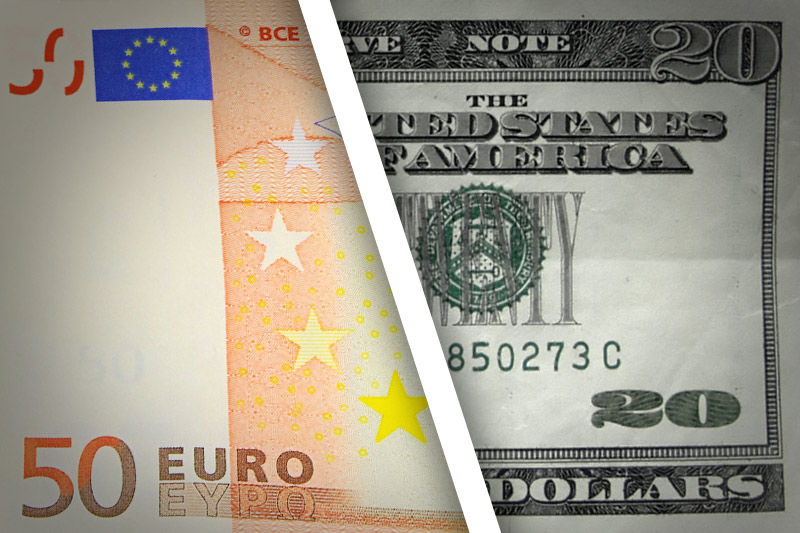Investing.com -- The euro weakened slightly against the U.S. dollar on Friday amid the release of mixed U.S. economic data and the approval of an extension of the Greece bailout in Germany.
EUR/USD reversed previous gains late in U.S. trading after Federal Reserve vice chair Stanley Fischer announced that the Federal Open Market Committee (FOMC) anticipates that it will raise its benchmark Federal Funds Rate at some point this year.
The euro fell 0.0003 or 0.03% to close at 1.1196. At one point during trading, the euro dropped to its lowest level against the U.S. dollar since the fall of 2003.
EUR/USD reached a daily high of 1.1246 following the release of several U.S. economic indicators. U.S. gross domestic product for the final quarter of 2014 increased at a 2.2% rate, down from an initial estimate of 2.6%, the Commerce Department said. In the third quarter, the U.S. economy grew at rate of 5%.
The Institute for Supply Management-Chicago Business Barometer, also known as Chicago PMI, fell further than expected -- dropping to a five and a half year low of 45.8. The reading fell from 59.4 in January, following significant drops in production and order backlogs. In addition, frigid temperatures nationwide caused the University of Michigan's Consumer Sentiment index to drop for the month of February following an 11-year high the previous month.
At the same time, there was positive news in the housing sector as pending home sales in the United States increased to its highest level in a year and half. The National Association of Realtors Pending Home Sales Index increased 1.7% for January, marking the fifth consecutive month of year-over-year gains.
In spite of the weak euro, the STOXX Europe 600 Index increased 0.39% or 1.52 to 392.21. The index is up more than 13% for the year.
Also on Friday, Gemany's lower house of parliament approved a four-month extension of a bailout to Greece. Members voted to approve the euro zone €240 billion bailout by a vote of 541-32.
